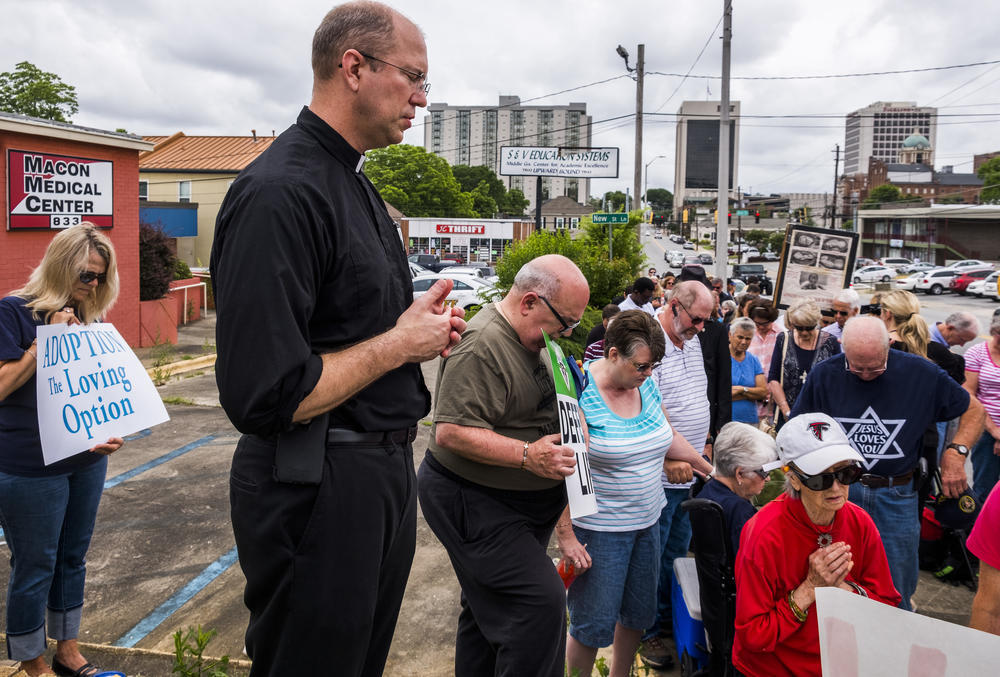
Caption
Anti-choice protesters outside a Macon clinic then slated to become an abortion provider in 2018. The protesters won, leaving the closest abortion provider two hours away in Columbus.
Credit: Grant Blankenship/GPB

Anti-choice protesters outside a Macon clinic then slated to become an abortion provider in 2018. The protesters won, leaving the closest abortion provider two hours away in Columbus.
The Supreme Court decision to overturn Roe v. Wade came during a symposium of maternal health experts on the Macon campus of Mercer University. Reactions by attendees were mixed.
Among those were Krista Mincey, who teaches community medicine at Mercer with an emphasis on Black mental health. She said nothing about the decision is logical and she's concerned about the impact to the public health system.
“We don't have support for once the child gets here; it's like we just care when it is in the uterus,” Mincey said. “But if you're not providing any services to someone after, I don't know how you can force someone to do something. Most of the people that are going to be influenced by this are people of color.”
Mincey’s point — that people of color stand to lose most in a post-Roe world — was echoed by Tina Hobson. Hobson’s job is supporting low income or first-generation college students at Mercer.
“So the thing is, at the end of the day, you're going to have a whole lot more Black women dying because they're not getting the medical care they need,” Hobson said.
“So they're too poor to have the baby and they decide they don't want to have it, they can't do it because they don't have the money to go fly off to Rio to get their pregnancy aborted like some folks do.”
She said, basically, “They’re trapped in Georgia.”
Becky Mitchell, a nurse in maternal health with some 20 years experience in South and Middle Georgia, disagreed.
“I think this is going to help,” Mitchell said. “I've counseled so many women over the years that had thought that they wanted to have an abortion to, quote, ‘take care of a problem.’ And so many women, even at 50, are still dealing with mental health issues due to what they did.”
Unlike other Southern states, Georgia did not have a so-called “trigger law” banning all abortions waiting for the Supreme Court’s decision to make it constitutional.
Instead, Georgia’s new abortion law, which is still tied up in court, would make most abortions illegal after six weeks of gestation and would require people to get counseling at least 24 hours prior to aborting a pregnancy.